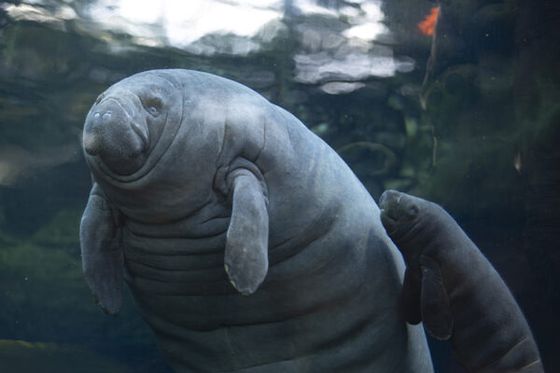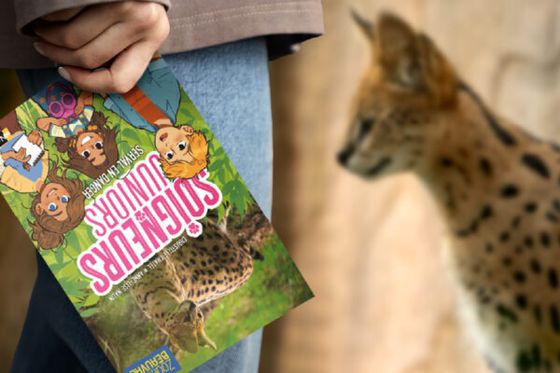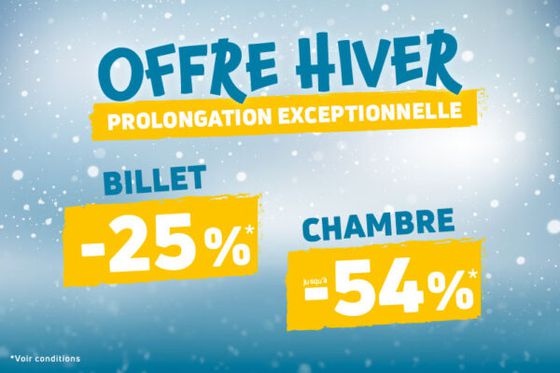Our commitments to the environment
For almost 45 years, the ZooParc has been addressing ecological issues and implementing numerous actions to limit its ecological footprint. Find out about all these actions, including our biogas plant, which creates energy from the park’s manure.

Actions for a better tomorrow
Printing on recycled paper
Shower gel and shampoo dispensers
Less waste and reduction of plastic waste
Weeding by hand
No herbicides or chemical weedkillers used!
Rainwater harvesting
Put in place for all impervious surfaces (car parks, tarmacked pathways, roofs) and used for watering
1,630 new bars of soap reformed
Using 187 kg of soap scraps collected in 2019
Favour local and seasonal fruits & vegetables
Both for visitors and the animals
AQUAchiara © filtered water at the hotels
Reuse of glass bottles to avoid the use of plastic bottles
Biodegradable tableware at food outlets
Plates, cutlery, cups, napkins, straws…
Natural cleaning products
Organic bed linen and sponges
Composting and reuse of plants
Branches and green waste are partially shredded for use as mulch or as soil improver
Integrated Biological Protection
using auxiliary insects (no insecticides)
Comprehensive action for ethical tourism!
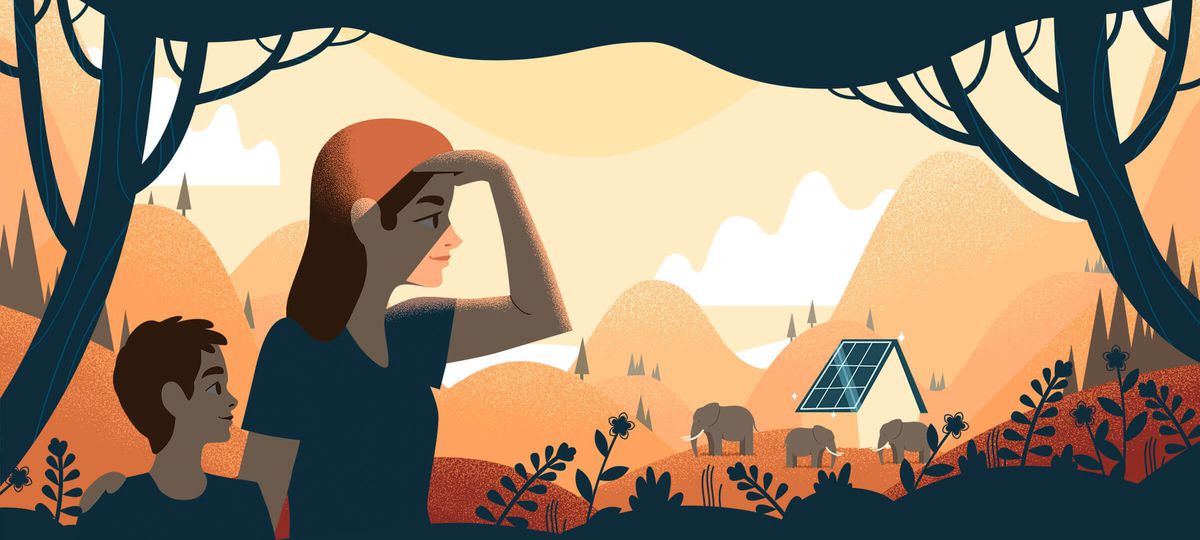
Renewable energy production
By recycling its green waste and producing a portion of its electricity, the ZooParc de Beauval is committed to responsible management and to having a minimal impact on the environment.
Reducing greenhouse gas emissions
Producing local green energy
Reducing energy costs for the ZooParc de Beauval
The particularities of a zoological park have allowed us to implement several solutions for the creation of renewable energy. The elephant building, for example, is covered with 3,000 m² of solar panels. Even organic waste is utilised at Beauval!
Since 2014, the biogas plant has been used to transform the ZooParc’s manure into energy, which is used to heat various spaces, such as the gorilla greenhouse.
Through these methods, the ZooParc was able to reduce its greenhouse gas emissions by a CO2 equivalent of nearly 1,107 tonnes and produce more than 1.9 GWh of electricity. This is the equivalent of more than 300 households.
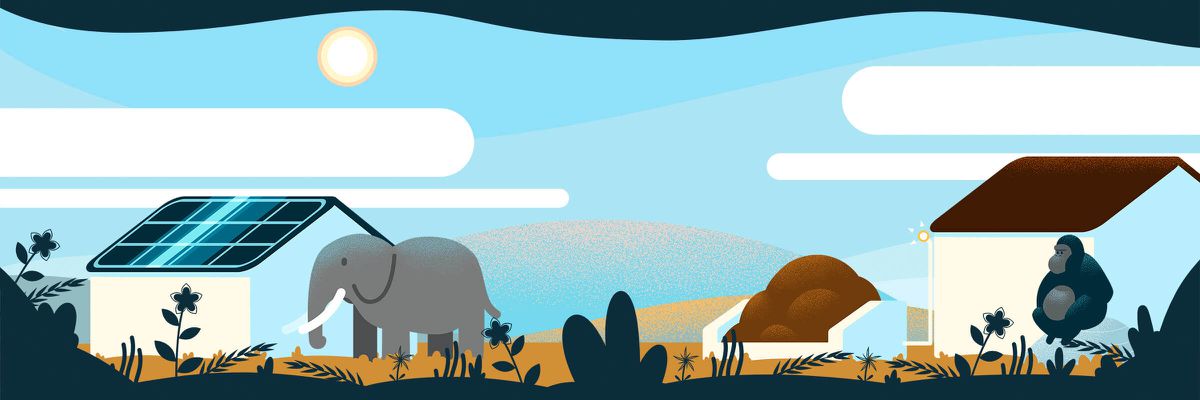
Beauval has opened a new centre for sorting and recovering its waste
A brand-new building has just been constructed near the ZooParc de Beauval.
The “Ecocentre” is a new facility designed to collect and recover (whenever possible) the waste produced at the ZooParc: animal waste, green waste, materials, packaging, etc. The objective of Beauval’s Ecocentre is to encourage reduction and re-use of these materials and, in the medium term, to recover 80% of the waste produced. Depending on the nature of the waste, it is deposited, sorted, reused, or recycled, and processed through a variety of channels. Given the development of the ZooParc and the increase in the number of visitors each year, waste cycle optimisation is a necessity.
The ZooParc has now also installed a PET Bi-shredder: all plastic bottles are now shredded before being sent to recycling facilities. In 2022, almost 12 tonnes of PET were recycled into rPET (recycled plastic used to make new bottles).
At present, around 1,000 tonnes of all types of waste are processed every year by the Environmental Services team.
The Ecocentre is located opposite the biogas plant, which processes more than 9,000 tonnes of green and animal waste per year, including manure, liquid manure, and used cooking oil from zoo and hotel catering services. The plant produces 2 GWh of electricity (which is fed back into the grid) and an equal amount of heat. This energy, produced on-site, is used in part to heat the gorilla greenhouse and the elephant house.
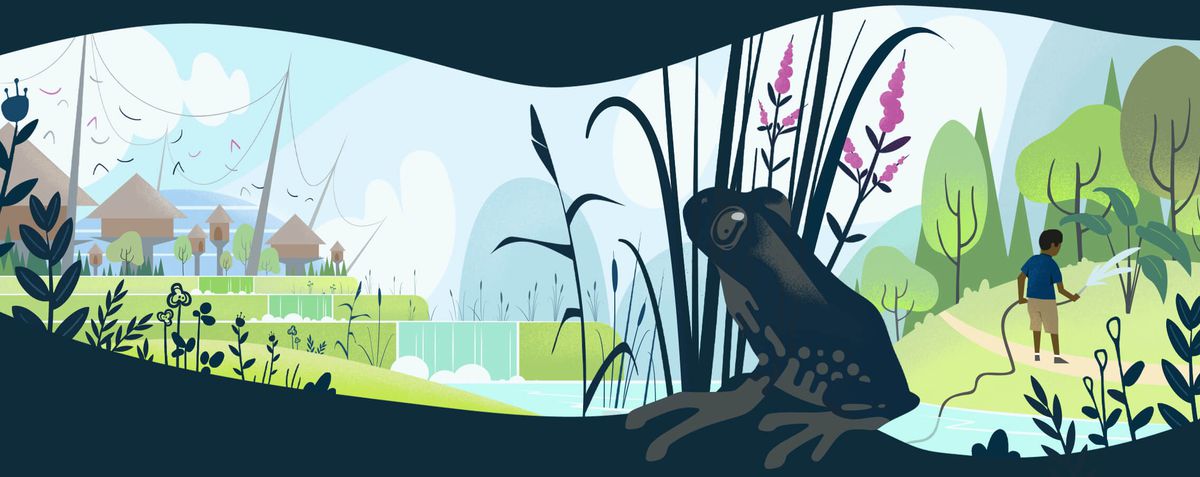
Phyto-purification: a natural method of filtration has been put in place at Beauval
The opening of the Great South American Aviary, a new territory of the ZooParc dedicated to species from the South American continent, posed questions concerning water management. A phyto-purification station was therefore created just downstream from the aviary to collect the water from the ponds, filter it, and then re-inject it back into the system therefore creating an eco-friendly closed circuit!
To further the objective of water recycling, filtration water from the hippos, sea lions, and pools located in the Dome is also added to this station. An ingenious system of pools, filters, and lagoons has been designed to filter the water using reeds and other helophyte plants*, with various layers of gravel and sand acting as mechanical filters. After this natural process, the combined action of UV rays and micro-organisms cleanses and kills pathogens. At the end of the circuit, the quality of the water is equivalent to that found in a natural swimming pool. When necessary, some of this 'clean’ water is also used to water the plants in the Great South American Aviary. In addition to its function as a phyto-purification system, the whole project has been designed to act as a haven for local fauna. Countless frogs, toads, newts, foxes, ducks, moorhens, and swallows have taken up residence throughout the lagoon since the phyto-purification system was installed in March 2023.
*marsh plants


